
LDPR — Liberal Democratic Party of Russia is a Russian ultranationalist and right-wing populist political party in Russia. It succeeded the Liberal Democratic Party of the Soviet Union (LDPSU) in Russia after the dissolution of the Soviet Union. The party was led by Vladimir Zhirinovsky since its inception until his death in April 2022. Opposing both communism and capitalism of the 1990s, the party scored a major success in the 1993 Duma elections with almost 23% of the vote, giving it 64 seats of the 450 seats in the State Duma. In the 2021 elections, the party received 7.55% of the vote, giving it 21 seats.

Dmitry Olegovich Rogozin is a Russian nationalist politician serving as the senator from the Russian-occupied Zaporozhye Oblast since 23 September 2023. He previously served as director general of Roscosmos from 2018 to July 2022, as deputy prime minister in charge of the defense industry from 2011 to 2018, and as Russia's ambassador to NATO from 2008 to 2011.
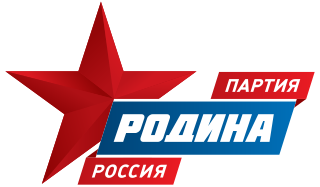
The All-Russian Political Party "Rodina" is a nationalist political party in Russia. It was a coalition of thirty nationalist groups that was established by Dmitry Rogozin, Sergey Glazyev, Sergey Baburin, Viktor Gerashchenko, Georgy Shpak, Valentin Varennikov and others in August 2003. The party's ideology combines "patriotism, nationalism, and a greater role for the government in the economy", and is described as pro-Kremlin. Its headquarters is located in Moscow.

Anti-NATO protests took place in the Ukrainian port city of Feodosia from late May to early June 2006, partially disrupting a joint Ukrainian-U.S. military exercise, which was canceled 20 July 2006.

Alexander Mikhailovich Babakov is a Russian politician and member of the State Duma, the Russian parliament. He was appointed Special Presidential Representative to Russians by Vladimir Putin in 2012.
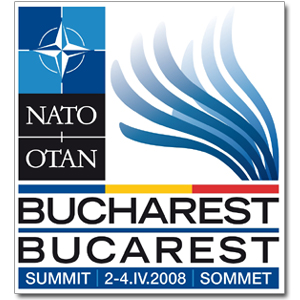
The 2008 Bucharest Summit or the 21st NATO Summit was a NATO summit organized in the Palace of the Parliament, Bucharest, Romania on 2 – 4 April 2008.
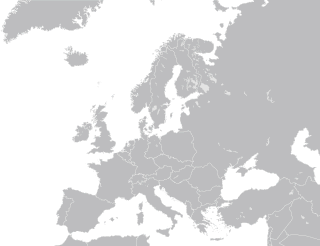
NATO is a military alliance of thirty-two European and North American countries that constitutes a system of collective defense. The process of joining the alliance is governed by Article 10 of the North Atlantic Treaty, which allows for the invitation of "other European States" only and by subsequent agreements. Countries wishing to join must meet certain requirements and complete a multi-step process involving political dialogue and military integration. The accession process is overseen by the North Atlantic Council, NATO's governing body. NATO was formed in 1949 with twelve founding members and has added new members ten times. The first additions were Greece and Turkey in 1952. In May 1955, West Germany joined NATO, which was one of the conditions agreed to as part of the end of the country's occupation by France, the United Kingdom, and the United States, prompting the Soviet Union to form its own collective security alliance later that month. Following the end of the Franco regime, newly democratic Spain chose to join NATO in 1982.
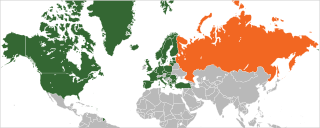
Relations between the NATO military alliance and the Russian Federation were established in 1991 within the framework of the North Atlantic Cooperation Council. In 1994, Russia joined the Partnership for Peace program, and on 27 May 1997, the NATO–Russia Founding Act (NRFA) was signed at the 1997 Paris NATO Summit in France, enabling the creation of the NATO–Russia Permanent Joint Council (NRPJC). Through the early part of 2010s NATO and Russia signed several additional agreements on cooperation. The NRPJC was replaced in 2002 by the NATO-Russia Council (NRC), which was established in an effort to partner on security issues and joint projects together.
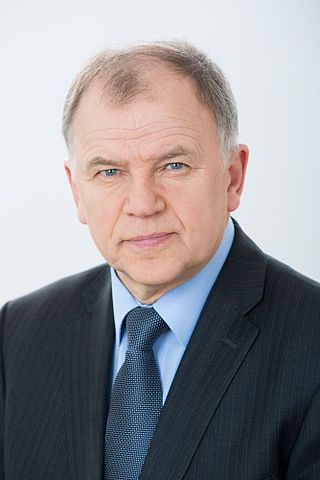
Vytenis Povilas Andriukaitis is WHO Special Envoy for the European region, the former European Commissioner for Health and Food Safety, a heart surgeon, a co-signatory to the 1990 Act of the Re-Establishment of the State of Lithuania.
The National Forum is a political party in Georgia established on December 15, 2006 by the former diplomat Kakha Shartava. He is the son of Zhiuli Shartava, a Georgian politician in Abkhazia, killed by the Abkhaz militias during the secessionist war in the region in 1993. Several veteran politicians such as Revaz Shavishvili, Irakli Melashvili and Gubaz Sanikidze also joined the party.
Party political council of the organizational members are: Kakhaber Shartava, Gubaz Sanikidze, Revaz Shavishvili, Irakli Melashvili, Nodar Javakhishvili and Irakli Gobejishvili. A leading Party member was economic expert Niko Orvelashvili who died on 15 January 2010.
The party advocates a parliamentary republic as a form of government in Georgia. Unlike most other Georgian political parties, it does not support Georgia’s aspiration to join NATO, and argues Georgia should be a "neutral country." The National Forum was a member of the United Opposition alliance which staged mass anti-government demonstrations in November 2007 and ran on an opposition ticket in the parliamentary election in May 2008. For the 2012 elections it was part of the Georgian Dream alliance that won the election against United National Movement. On April 3, 2016 National Forum left coalition after party convention, majority of members voted to leave Georgian Dream. In 2017, Nation Forum, together with Davit Usupashvili and other former members of Republican Party of Georgia found Development Movement.

Vyacheslav Viktorovich Volodin is a Russian politician who currently serves as the 10th Chairman of the State Duma since 2016. He is a former aide to President Vladimir Putin.
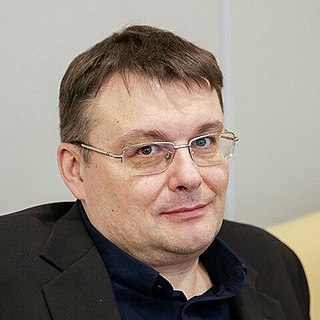
Yevgeny Alexeyevich Fedorov or Fyodorov is a Russian nationalist politician and deputy of the State Duma of the Federal Assembly of Russia four convocations, chairman of the Committee on Economic Policy and Entrepreneurship of the State Duma, member of the Central Political Council of United Russia party, PhD. State Councilor of the Russian Federation, coordinator of the organization "National Liberation Movement".

Irina Anatolyevna Yarovaya née Chernyakhovskaya is a Russian political figure, a Deputy Chairman of the State Duma from United Russia Party and a member of her party's General Council.
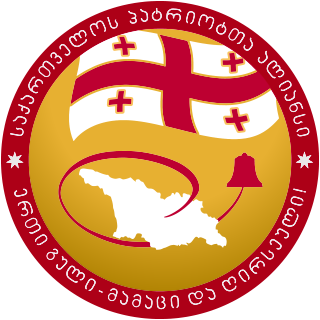
Alliance of Patriots of Georgia is a right-wing populist and anti-Western political party in Georgia. It was founded in 2012 by leaders from the Resistance Movement, which opposed the pro-Western government of Mikheil Saakashvili. Davit Tarkhan Mouravi has served as the party's chairman, while Irma Inashvili serves as its secretary general.

Aleksey Aleksandrovich Zhuravlyov is a Russian nationalist politician and member of the State Duma. Since 29 September 2016 he has been chairman of the Rodina political party. His views are often militarist, hawkish, and irredentist.

Revival is a far-right and ultranationalist political party in Bulgaria, founded in August 2014. Its chairman is Kostadin Kostadinov. The party is characterised by various analysts and media as pro-Russian, anti-EU, anti-NATO, anti-American, being opposed to COVID-19 vaccinations and spreading anti-vaccine and anti-LGBT rhetoric.

Dmitry Vadimovich Sablin is a Ukrainian-born Russian politician, who has served as a Member of the State Duma since 2016, having previously held the office between 2003 and 2013. Sablin served as Senator from Moscow Oblast from 2013 to 2016. He is a member of the ruling United Russia party and represents New Moscow.
The Confederation of the Polish Crown, often shortened to The Crown, is a monarchist and far-right political party in Poland. It is led by Grzegorz Braun.

Andrey Valeryevich Kartapolov is a Russian politician and former army officer of the Russian Army. From 30 July 2018 to October 2021 he served as Deputy Defence Minister, and headed the Main Military-Political Directorate of the Russian Armed Forces. He had commanded the Western Military District from 2015 to 2016, and again from 2017 to 2018. Kartapolov has held the rank of colonel general since 2015. He is currently a member of parliament, a deputy of the State Duma, elected on 19 September 2021.
















